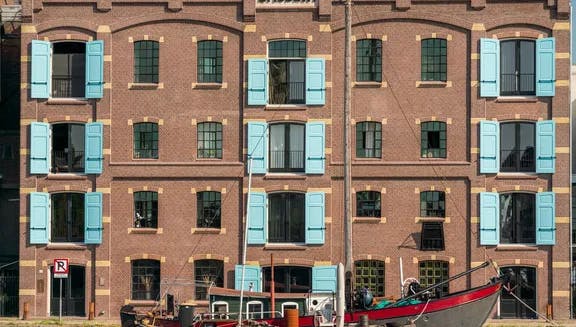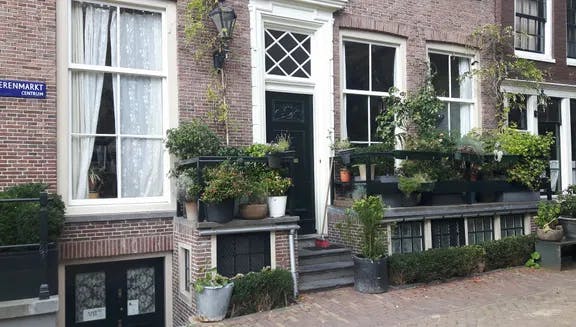
Overview of housing rights in the Amsterdam Area
What are your basic housing rights when renting?
Dutch law has many rules that protect your rights as a tenant. There are rules regarding rent control, furnishing and service costs. Housing agencies in the Amsterdam Area must abide by the rules and can be held accountable if you are being charged too much rent. Crucially, a landlord cannot simply evict you from your home. Only a court can terminate your lease if there is a conflict.
Of course, not all landlords play by the rules, especially when there is a shortage of available housing. And in the case of international newcomers, some landlords – a small minority – may try to exploit a renter's lack of knowledge. That is why it is important to know your rights and to read a tenancy agreement carefully before signing.
Tenancy agreements
Your tenancy agreement is a binding legal contract. In some cases, it is possible to re-negotiate the rent. For example, if your basic rent is higher than the maximum for social housing but according to Dutch law it should be within the threshold for social housing, you can seek assistance from the Rent Tribunal. This must happen within the first six months of your contract. You may also wish to challenge unjust agency fees or excessive deposits. If the law has been broken, you have the right to challenge the landlord and request refunds where necessary. If you have questions about these or other issues, you can seek free and confidential advice from the !WOON tenant support agency.
- Read our guide to finding rental property in the Amsterdam Area
- Find out more about the Rent Tribunal (Huurcommissie)
- What is the maximum rental threshold for social housing
- Contact !WOON
- Read the !WOON guide to reclaiming unjust agency fees
What should you keep in mind when signing a rental contract?
Deposit and contract expenses
When you rent a home, the landlord can ask you to pay a deposit. Usually the deposit amounts to one or two months’ rental. Three months is considered unreasonable. Learn more about your deposit and how to get it back. Sometimes the landlord also charges contract and administration expenses. These expenses can often be disputed. If you have paid too much in deposit or expenses, you can ask for free legal advice on how to get some or all of the money refunded.
Buying items from previous tenant (overnamekosten)
Many tenants make home improvements at their own expense and when they move, they often ask the new tenants for a payment to cover the costs. However, this is only permitted for movable items in the home (e.g. curtains, carpets). The money you pay for items that the previous resident leaves behind is called overnamekosten in Dutch. The price must be reasonable. The departing tenant may not charge anything for fixed masonry and carpentry work, such as plastering, a shower, central heating and so on.
Key fee (sleutelgeld)
It is illegal for landlords to request that a tenant pay a fee before they can move into the home. This is called the 'key fee' (sleutelgeld). Departing tenants may also sometimes demand such a payment, either with or without permission from the landlord. This term is also used when the tenant asks for overnamekosten (see above) without offering any goods in return. Essentially it means that you are paying a sum of money just to receive the key, while the other party does nothing in return. Charging key money is not permitted. Do not pay!
What should you consider during rental disputes?
Rental price and points system
Each property in the Netherlands has a designated rental value. The rental value of a home is based on a national points system (woningwaarderingsstelsel). The number of points is determined by the quality, size, location and facilities of the home. The total number of points indicates the maximum rental price for your home. On the basis of this limit, you can determine whether the rental price (e.g. after a rent increase) is reasonable in proportion to the quality of the home. Information from the Dutch government about the points system.
Resources for disputes between tenants and landlords
The national Rent Tribunal (Huurcommissie) is the independent government organisation that rules on disputes between tenants and landlords. But if you have a dispute with the landlord over the rental price, the first step is asking for advice from !WOON. Please note that the Rent Tribunal has no jurisdiction in the private sector of the housing market – only a court can rule on disputes in the private sector.
Home maintenance
Both tenant and landlord have obligations regarding home maintenance. The tenant sees to small and day-to-day repairs; the landlord is responsible for major repairs and maintenance. The Rent Tribunal can handle disputes about maintenance. Find more information on rental housing regulations and maintenance tasks for tenant and landlord (page in Dutch). If you have a complaint about the maintenance of your home, you can ask for advice from !WOON.
Disputes with neighbours
If your neighbours regularly make a lot of noise at night, intimidate or threaten you, or cause some other extreme form of trouble and you have already tried everything to solve the problem yourself, there are various services you can turn to. You should always contact your landlord first. Your landlord may be able to act as a mediator between you and your neighbours. Housing associations have contacts with various mediation and support services. You can also report the trouble caused by your neighbours yourself.
- Report problems with neighbours to the city council (information in Dutch).
Housing allowance
There are a number of social benefits for residents in the Netherlands. The housing allowance (huurtoeslag) is a financial contribution towards the cost of a rented home and is intended to help tenants who earn less than a government-determined income threshold. There is a maximum rent eligible for the allowance. Social housing normally conforms to this maximum, but private rental accommodation is often too high. A number of conditions apply, such as your income and the value of any assets you have. Please note that recipients of housing allowance who turn out to be ineligible for this benefit are required to pay back what they have received.
- More information on allowances from the Dutch government (in Dutch)
- Online calculation tool for housing allowance (in Dutch)
- Step-by-step guide to using the tool, in English (pdf)
- How to apply online for housing allowance (in Dutch)
- A free helpline also provides information on 0800 0543.
Do you have more questions about rental housing?
Drop by or call !WOON for free advice on all rental matters. There are offices in each of the Amsterdam City Districts.
Related articles

Rent property in the Amsterdam Area

Buy property in the Amsterdam Area

Tips on avoiding housing scams in Amsterdam

A guide to utilities in the Netherlands

The mortgage market in the Netherlands

6 insider secrets for securing a Dutch mortgage

8 steps to buying a house in the Netherlands

Why buy rather than rent a home in the Netherlands?

How to transfer a mortgage
